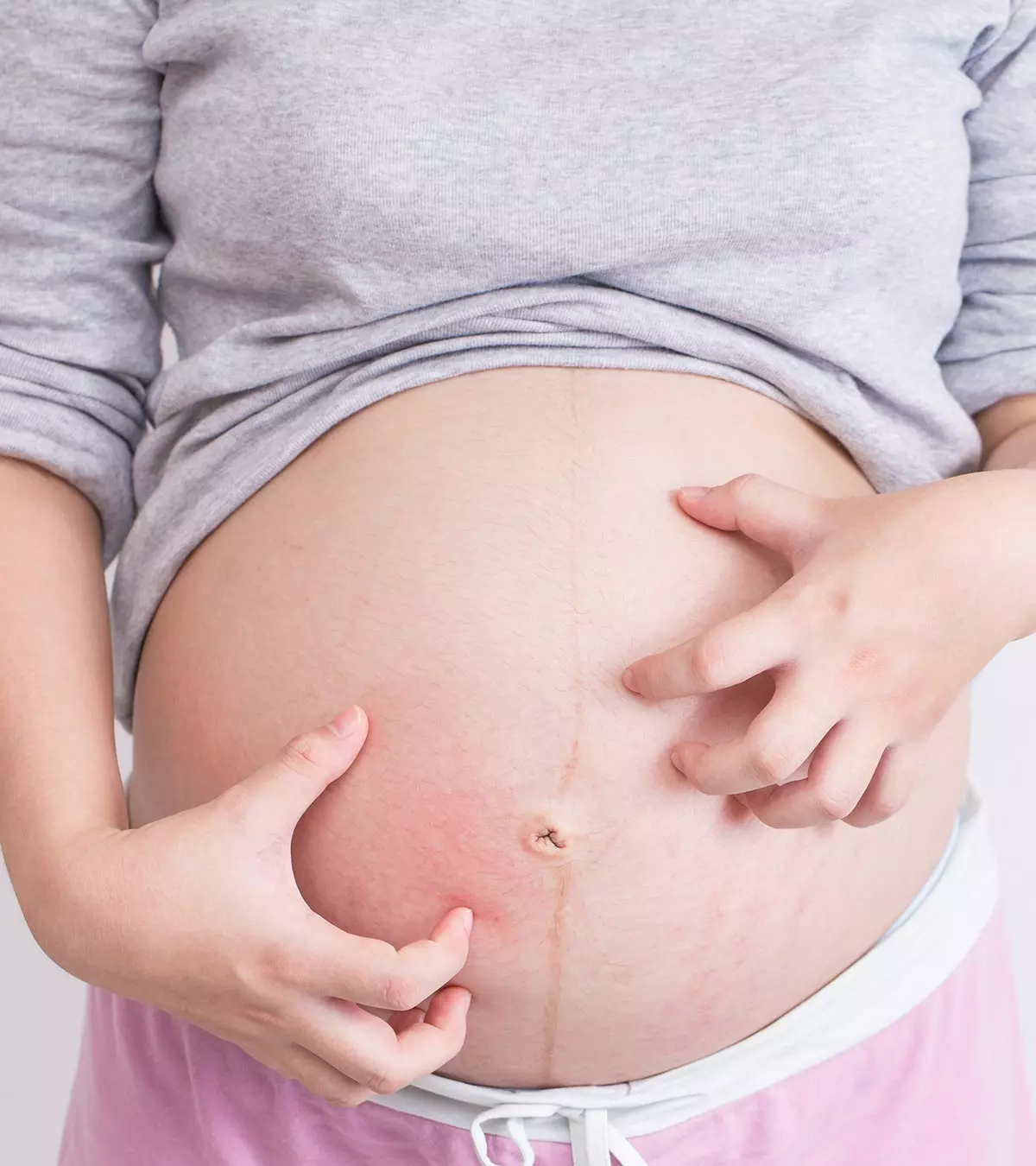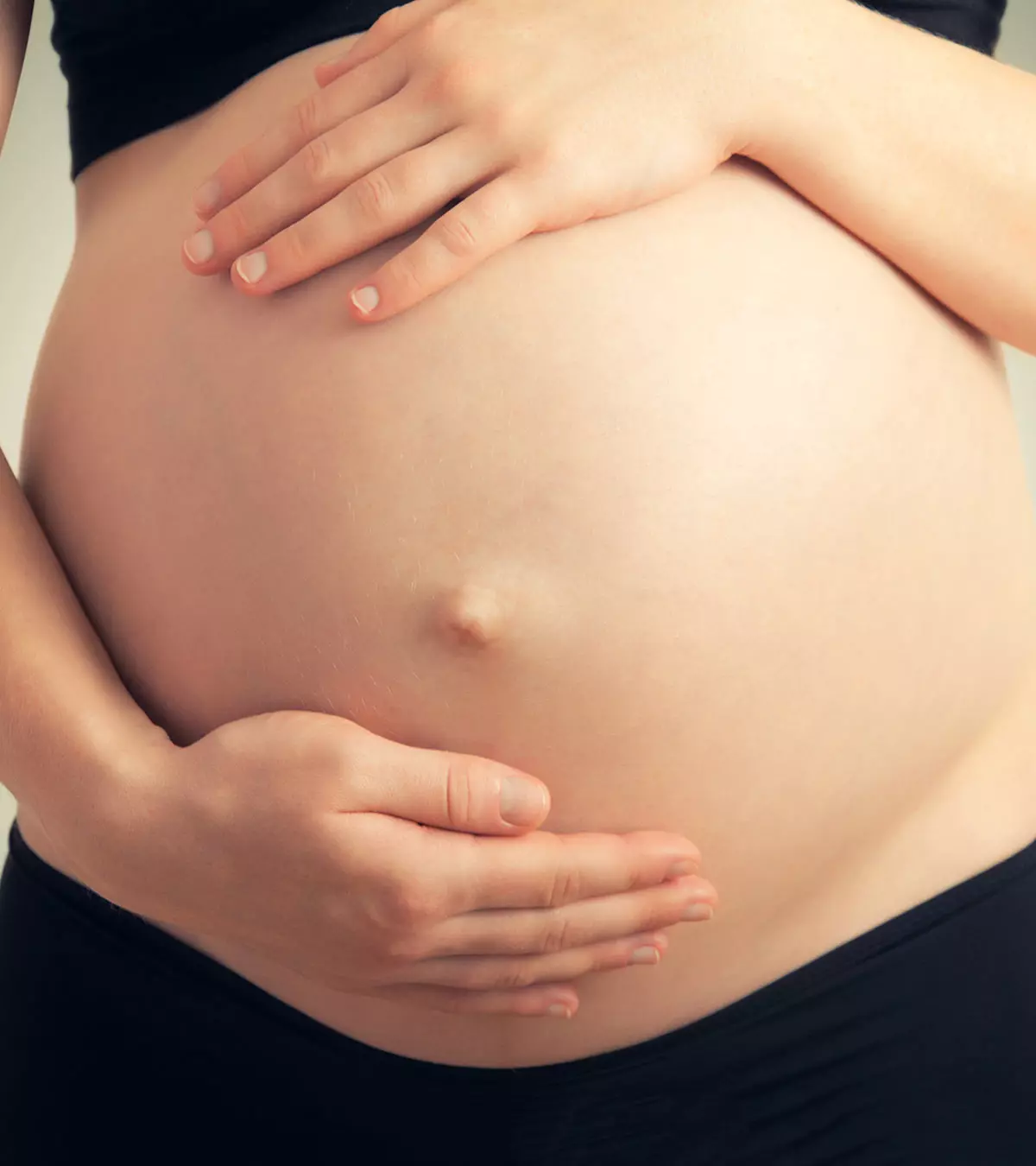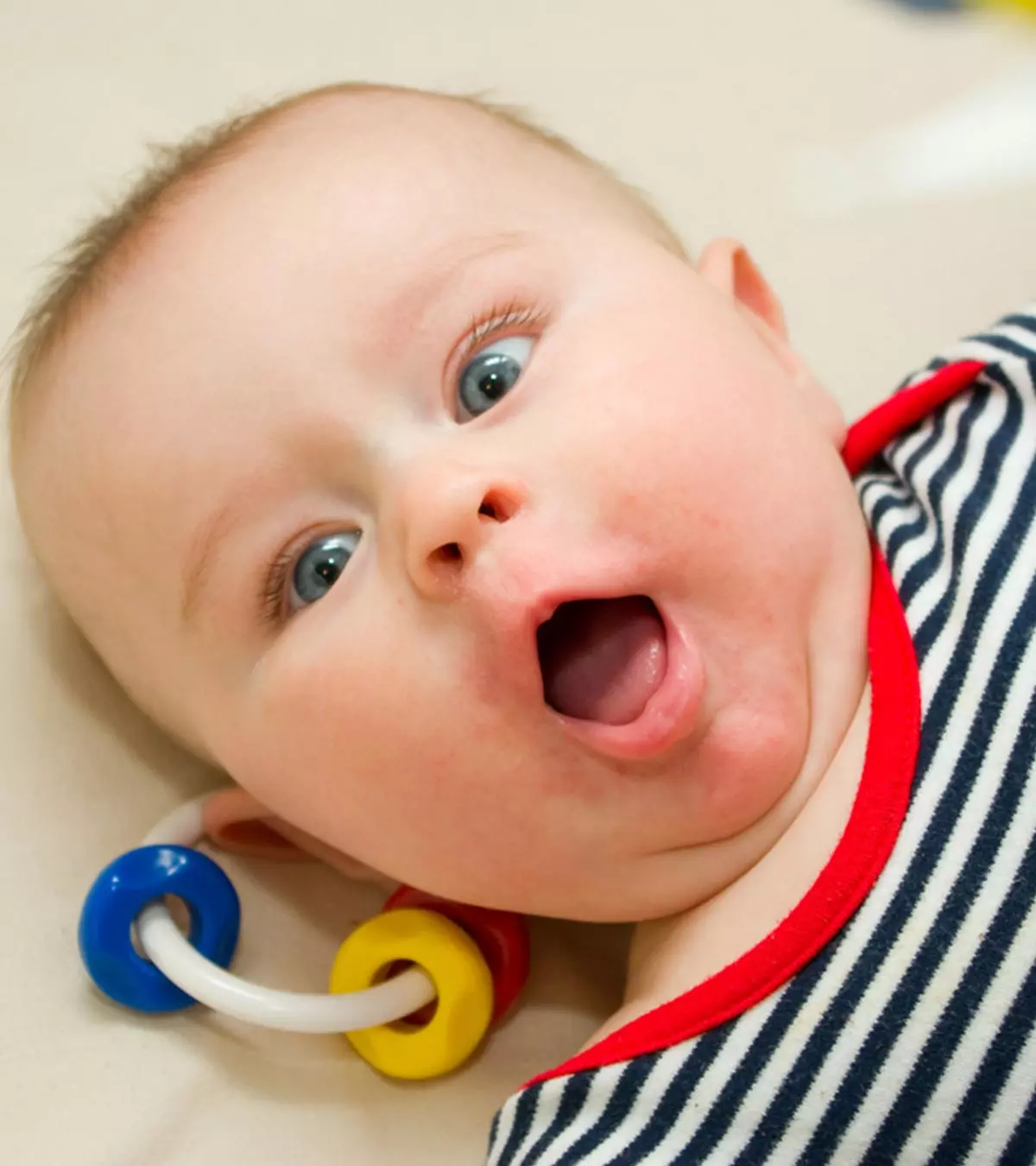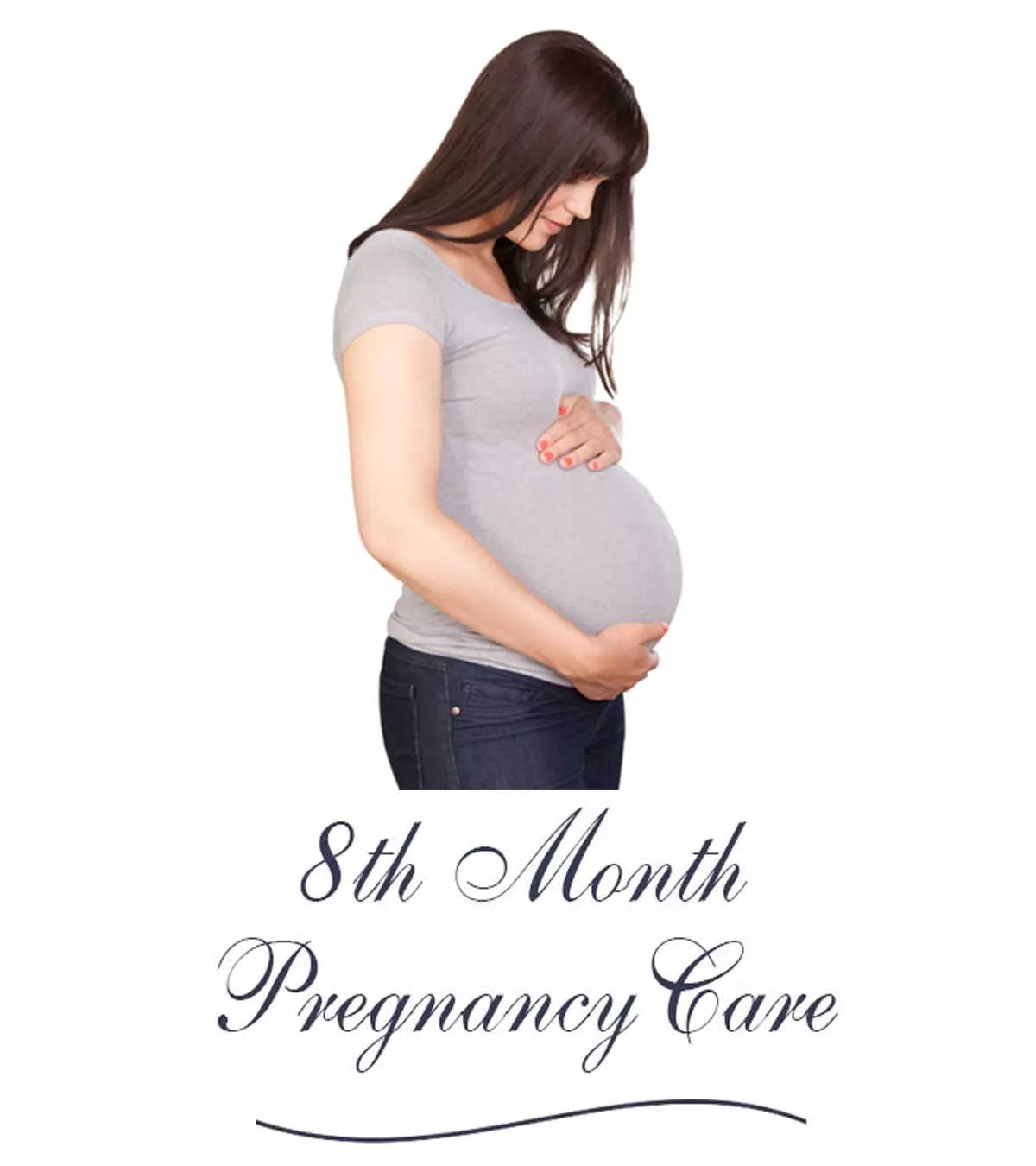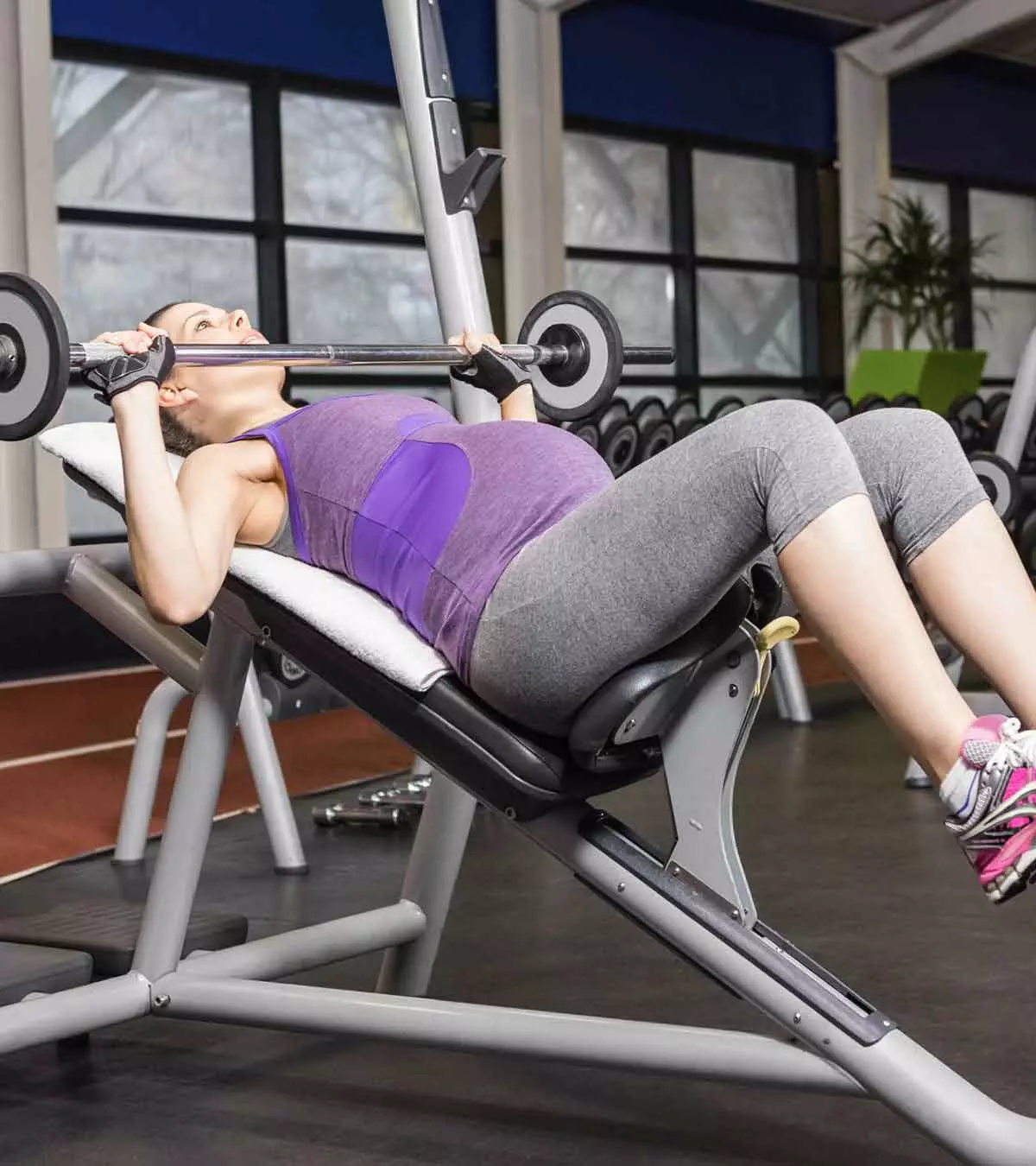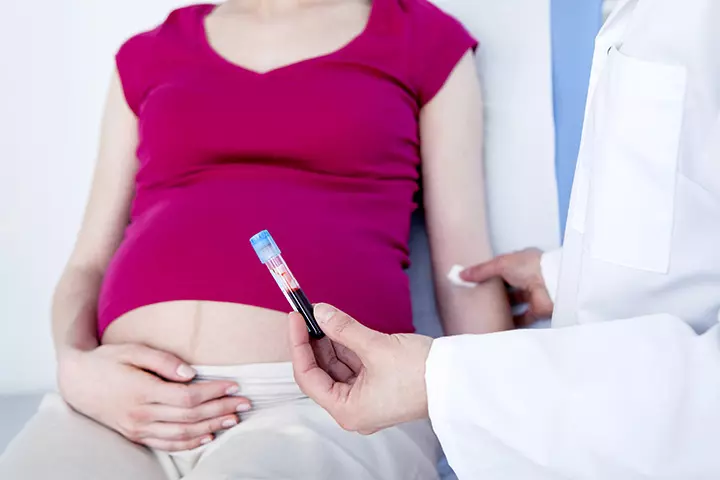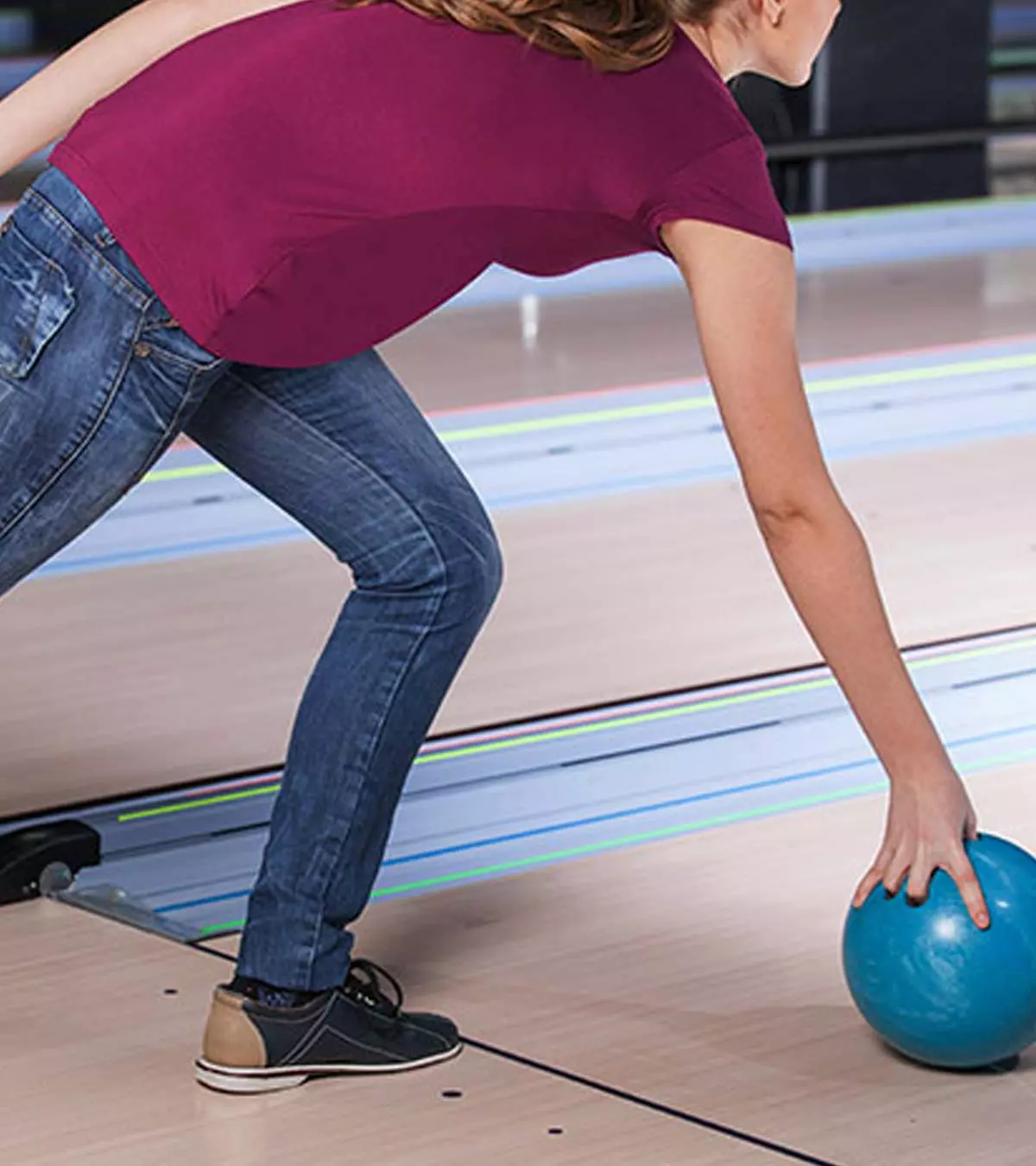
Image: ShutterStock

The joy of watching the ball move and hit all the pins is unsurpassed when bowling. Eventually, you would want to repeat playing this game almost every weekend if you could. Should you, however, take a break from bowling, or can you continue to have fun bowling while pregnant?
You might worry if bowling is safe during pregnancy because it demands lifting the weight of a bowling ball and leaning down. This post provides an answer to your query and more information on playing this wonderful game while pregnant.
Key Pointers
- Bowling is a sport that should be approached with caution during pregnancy.
- Pregnant women should try to avoid heavy weights and wear comfortable shoes to help with the extra weight.
- While pregnant, it is vital to maintain hydration, take frequent breaks, and avoid any activity that causes overexertion.
- If it is a high-risk pregnancy, medical professionals should be consulted before pursuing bowling.
- After following the necessary precautions, and if a woman has an uncomplicated pregnancy, bowling can be a safe sport.
Is Bowling Safe When You Are Pregnant?
Yes, it is safe to go bowling provided you follow a few precautions (1), the ball is not heavy, and if you do not have issues such as:
- placenta previa
- a history of preterm labor
- heart diseases
- carrying multiples
- Diastasis recti
- Previous knee or back injuries
According to New York-based board-certified obstetrician/gynecologist Dr. Ila Dayananda, “Moderate and low-impact physical activity, including bowling, is generally considered safe during pregnancy. It’s important to listen to your body, which may include being particular about which size bowling ball you’re using. As long as you’re not straining yourself or pushing through any stressors you might be feeling, recreational bowling should be a relatively safe activity to participate in while pregnant.”
However, you need to understand your body and talk to your doctor if you have symptoms such as abdominal pain, contractions or vaginal bleeding. Always check with your healthcare provider to get advice on safe activities during pregnancy.
When Can Bowling Be Uncomfortable?
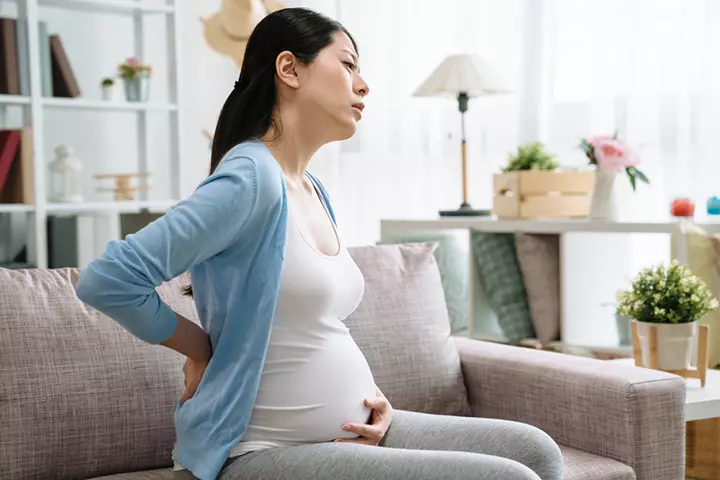
Image: Shutterstock
With progressing pregnancy, bowling might become uncomfortable due to several reasons (2):
- As the tummy or bump grows, there is an excess pressure on your back to support the body.
- The shift in the center of gravity makes it difficult to maintain balance and coordination while bowling through the alley.
- Your joints and ligaments begin to lose strength in the upper and lower body, and bowling uses more upper-body strength.
- Your joints and ligaments become loose, making overextension, sprain, strain, or dislocation more likely to occur.
Laurie, a runner and blogger, engaged in bowling during pregnancy. Recounting her experience, she says, “At one point in our marriage, my husband and I belonged to a couples bowling league that met every Saturday night… The following year, I was nine months pregnant with our middle son during Advent. Bowling while nine months pregnant is not as easy as it might seem. Your center of gravity shifts. I always felt like I waddled up to the alley and heaved the ball in the general direction of the pins, hoping for the best (i).”
 Quick fact
Quick factWhat Are The Benefits Of Bowling (And Other Low-Impact Activities) During Pregnancy?
Experts suggest pregnant women take up low-impact exercises such as brisk walking, swimming, cycling, and prenatal yoga. You may consider including them in your everyday routine because (2):
- They are known to lower the risk of chronic conditions such as high blood pressure and diabetes.
- They exert minimum stress on your joints and are hence better than high-intensity activities such as swimming.
- Recreational activities such as bowling will boost your mood, and lower the risk of depression.

Image: Shutterstock
- They also improve your heart rate, stamina, and fitness just as aerobic exercises do.
- They can improve your mental health and benefit your postpartum recovery.
Remember that you can start any exercise during pregnancy only after consulting your doctor. Also, you should not overdo them.
Safety Tips For Bowling During Pregnancy
Bowling balls might put pressure on your shoulders, joints, and back. You might also slip in the alley. Therefore, take some safety measures to prevent falls and injuries.
- Choose lighter balls to avoid unnecessary pressure on the back, as they are easier to handle and lower the risk of injury. The ligaments and joints turn supple during pregnancy, and therefore the chances of straining or injuring your back are high.
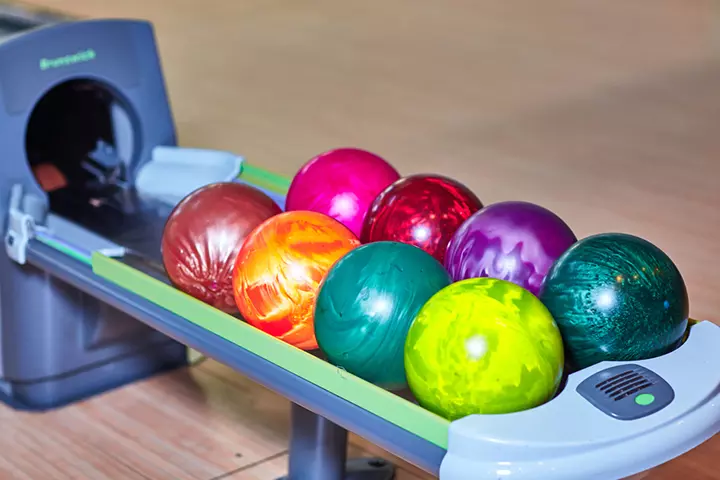
Image: Shutterstock
- Go for duckpin bowling as the balls are easy to handle because of their small size.
- Be careful while bowling as the alley or lane is usually smoothened with oils for the balls to move easily.
- If you feel that the movement is having a disturbing effect on your joints, stop doing it.
- Keep your back straight and bend your knees while lifting the ball. These postural modifications help remove the strain from your back and prevent injury to your spinal and fetal tissues.
Most importantly, stop playing it if you are not feeling comfortable.
 Quick tip
Quick tipCan Bowling Cause Miscarriage?
Bowling is not known to cause miscarriage as long as you do it with caution
. If your back starts to ache or you feel fatigued, refrain from the activity.
Exercises To Avoid During Pregnancy
Certain activities that exert stress on the body or increase the risk of injury should be avoided during pregnancy. Understanding exercises to avoid during pregnancy can help ensure a safer and more comfortable experience for both mother and baby. These exercises include (4) (5) (6):
- Activities where there is a possibility of collision, tripping, or falling (contact sports such as football, rugby, and hockey).
- Competitive sports that involve stretching or leaping beyond safe limits.
- Exercising under high temperatures, such as in spas or performing ‘hot’ yoga.
- Activities involving heavy equipment (such as weightlifting and scuba diving) (Pregnant women are generally not recommended to lift more than 10 to 15 lbs of weight starting in the second trimester).
- Exercises that involve lying on your back for prolonged periods, especially past 16 weeks of pregnancy.
- High-impact exercises or those that involve repetitive twists and turns.
Is It Safe To Go Bowling In The First Trimester Of Your Pregnancy?
Yes, it is safe to go bowling in the first trimester. But do not exhaust yourself, and choose a ball that is comfortable to lift.
Frequently Asked Questions
1. Should I avoid bowling during the later stages of pregnancy?
You may avoid any type of strenuous physical activity, including bowling, during the last trimester, when your center of gravity may be significantly altered due to the large belly bump.
2. Is it safe to wear bowling shoes while pregnant?
It is safe to wear bowling shoes while pregnant as they are designed to provide traction and prevent slips and falls.
3. What should I do if I feel uncomfortable while bowling?
If you feel any discomfort while bowling, stop right away. Pay attention to your body, and if the discomfort continues, check with your healthcare provider.
Bowling is a fun leisure activity or game loved and enjoyed by children and adults alike. However, pregnant women may be concerned about its safety. The bowling game involves lifting a heavy ball, bending down, running, and throwing the ball. A bowling game may be safe if you have an uncomplicated pregnancy, provided you take all safety measures and take it easy. Listen to your body, and do not overexert. Stop if you feel unusual or uncomfortable. For women with high-risk pregnancies, placenta previa, multiple babies, heart diseases, etc., it is recommended to avoid bowling while pregnant or seek your doctor’s permission before trying your hands on this sport.
Infographic: What Are The Benefits Of Bowling During Pregnancy?
If you’re pregnant and considering bowling, you must talk to your healthcare provider to ensure it’s safe. Once you have their green signal, join a local bowling league or go bowling with friends or family as a fun and low-impact way to stay active and healthy. Check out the infographic below for some benefits of bowling during pregnancy.
Some thing wrong with infographic shortcode. please verify shortcode syntax
Illustration: Is It Safe To Go Bowling While Pregnant?

Image: Dall·E/MomJunction Design Team
Learn the rules of safety and courtesy for bowling to ensure a fun and safe experience for everyone!
Personal Experience: Source
MomJunction articles include first-hand experiences to provide you with better insights through real-life narratives. Here are the sources of personal accounts referenced in this article.
i. Thinking About Advent And America. And bowling.https://meditationsinmotion.wordpress.com/2025/12/20/thinking-about-advent-and-america-and-bowling/
References
- Vesma Grinfelds & Bonnie Hultstrand; Right Down Your Alley: The Complete Book of Bowling; page 105
- Activities to Avoid During Pregnancy.
https://americanpregnancy.org/healthy-pregnancy/is-it-safe/activities-to-avoid-during-pregnancy/ - Exercise During Pregnancy; The Sensible Guide to a Healthy Pregnancy (2011)
https://www.wm.edu/as/programs/healthy_beginnings/files/healthy_beginnings_originals/exercise_during_pregnancy_pamphlet.pdf - Active pregnancy.
https://www.thewomens.org.au/health-information/pregnancy-and-birth/a-healthy-pregnancy/active-pregnancy - 3 exercises to avoid during pregnancy – and 7 that are safer.
https://utswmed.org/medblog/exercises-avoid-pregnancy/ - Exercises to avoid in pregnancy.
https://www.tommys.org/pregnancy-information/im-pregnant/exercise-in-pregnancy/exercises-avoid-pregnancy - S Miller and G M Rayan; (1998); Bowling related injuries of the hand and upper extremity; a review.
https://pubmed.ncbi.nlm.nih.gov/9714970/
Community Experiences
Join the conversation and become a part of our nurturing community! Share your stories, experiences, and insights to connect with fellow parents.
Read full bio of Rebekkah Traptow
- Dr. Ila Dayananda, a board-certified obstetrician & gynecologist, most recently served as the chief medical officer for Planned Parenthood of Greater New York. She studied medicine and master's in Public Health at Northwestern University Medical School and then pursued an OB/GYN residency at the Beth Israel Deaconess Medical Center in Boston, MA. Dr. Dayananda holds a Family Planning Fellowship at Brigham and Women's Hospital/Harvard Medical School in Boston, MA.
 Dr. Ila Dayananda, a board-certified obstetrician & gynecologist, most recently served as the chief medical officer for Planned Parenthood of Greater New York. She studied medicine and master's in Public Health at Northwestern University Medical School and then pursued an OB/GYN residency at the Beth Israel Deaconess Medical Center in Boston, MA. Dr. Dayananda holds a Family Planning Fellowship at Brigham and Women's Hospital/Harvard Medical School in Boston, MA.
Dr. Ila Dayananda, a board-certified obstetrician & gynecologist, most recently served as the chief medical officer for Planned Parenthood of Greater New York. She studied medicine and master's in Public Health at Northwestern University Medical School and then pursued an OB/GYN residency at the Beth Israel Deaconess Medical Center in Boston, MA. Dr. Dayananda holds a Family Planning Fellowship at Brigham and Women's Hospital/Harvard Medical School in Boston, MA.
Read full bio of Rebecca Malachi
Read full bio of Swati Patwal
Read full bio of Dr. Joyani Das






